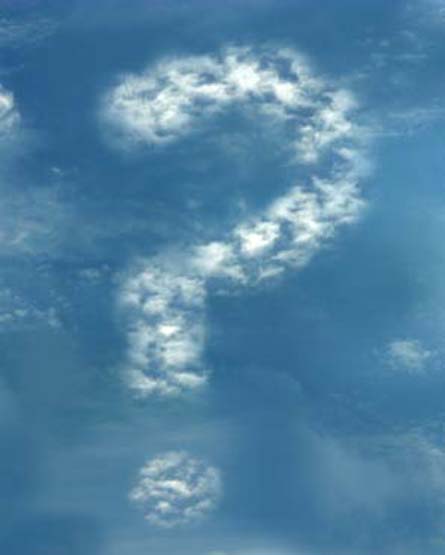
People, writes Rabbi Joseph B. Soloveitchik, "are glad to associate themselves with the Maccabees . . . — be they half-Jews, whole Jews, assimilated Jews, atheists, agnostics and even those who are Jew-haters."
When he was in his twenties in Berlin, Rabbi Soloveitchik remembers chancing upon a copy of the Moscow newspaper Der Emes (The Truth), "the newspaper of the Yevsektsiya, the Jewish department of the notorious Soviet NKVD [forerunner of the KGB]. This newspaper also had an article on Chanukkah and the Hasmoneans. With every means at its disposal, the article argued that Chanukkah was actually a Communist holiday, and the Jewish bourgeoisie and clerical world had no right to celebrate Chanukkah. Judah the Maccabee was the first Yevsektsiya member."
This is the gist of the beginning of an essay, "The Everlasting Chanukkah," which appears in "Days of Deliverance: Essays on Purim and Chanukkah," by Rabbi Soloveitchik. His point is this: However twisted, the idea that Chanukah is a universal holiday has some basis.
Judah Maccabee (and his father and brothers) — a tiny band — rose up and defeated a mightier power with cunning and commitment.
"Such extraordinary, brave conduct always elicits enthusiasm and sympathy," writes Rabbi Soloveitchik. "George Washington and the American patriots who revolted against repressive British power amazed the entire world. Everyone sympathized with Garibaldi when he waged his fight for freedom against Austrian tyranny . . . " And, needless to say, when Israel was the underdog in 1948, everyone was inspired by Israel, too. So there is a basis to call Chanukah a universal holiday.
The problem is this: The victory that the Maccabees won was relatively short-lived. Some 200 years later the independent Jewish state was smashed by the Romans and the Jews were dispersed into exile, not to return to the land of Israel for some 1,800 years.
Imagine: If the US were destroyed (Heaven forbid), who would celebrate July 4? For a while, perhaps the first generation of American survivors would recall July 4 with nostalgia — perhaps even commitment to win the country back. But if decades and then centuries passed, with the US consigned to the dustbin of history, July 4 would lose its significance.
The true significance of Chanukah, therefore, lies not in its universal aspect, writes Rabbi Soloveitchik. Fundamentally, Chanukah survives not because of a military victory of the weak over the mighty.
That's history. So why is Chanukah celebrated today? What is its significance that transcends the political freedom, lost some 2,000 years ago?
First, we must clear up a misconception, namely, that the Maccabees revolted in order to win their political freedom. Since the Jews had returned from the Babylonian exile over 400 years earlier, they had not enjoyed political independence. "If the only issue had been political sovereignty, the revolt would never have broken out," writes Rabbi Soloveitchik.
There was an added issue: the refusal of the ruling Greeks to accept the Jewish people's connection to the Divine. The Greeks sought to break down the Jewish commitment to Sabbath observance, circumcision and Rosh Chodesh. The Greeks defiled the Holy Temple. The Greeks forbade the study of Torah. The Jewish political revolt against the Greeks was but a means to secure their religious freedom.
But observe: The Jews' religious freedom was also short-lived. The same destruction of the Holy Temple in the year 70 by the Romans that robbed ancient Jewry of political independence also robbed it of its religious freedom — its sacred center in Jerusalem. The question returns: Why celebrate Chanukah today? Every aspect of the ancient Maccabean victory was overturned.
Actually, there is one single aspect of the ancient Chanukah that, in fact, endured: the lighting of the menorah. Although the ancient Holy Temple was destroyed — and with it all of its religious rituals for which the Maccabees had fought so bravely — one ritual survived even the Temple's destruction. Our lighting of the Chanukah menorah today extends and celebrates the ancient purification of the Temple — the ancient dedication of the Jews to Jewish ritual, to living in His presence.
Throughout the Diaspora, it was not the fleeting political success of the Maccabees that animated the Jewish people.
Jews endured under Crusade and pogrom, under discrimination and Holocaust.
All these hurt the Jews physically, but did not disturb the Jewish soul, did not weaken his vision of an inevitable Jewish future.
However, when the persecutors came after the Jewish soul, suddenly the passive Diaspora Jew, the "coward," the Jew who prayed three times a day —"And to such as curse me let my soul be dumb, and let my soul be unto all as the dust" — suddenly this passive Jew became a fighter, stubborn, un-bugeable, un-malleable.
Freedom for the body was not worried over. Freedom of the Jewish soul was sustained against all odds and pressures.
That is the message of Chanukah, the extension of the ancient Chanukah, the reason why it is celebrated today.
This, writes Rabbi Soloveitchik, is the everlasting Chanukah, symbolized by the lights that continue to be lit, even when the ancient Holy Temple no longer stands.
Comment by clicking here.
Rabbi Hillel Goldberg is executive editor of the Intermountain Jewish News and the author of several books on biblical and Judaic themes. His writings have appeared in JWR since its inception.



 Contact The Editor
Contact The Editor
 Articles By This Author
Articles By This Author